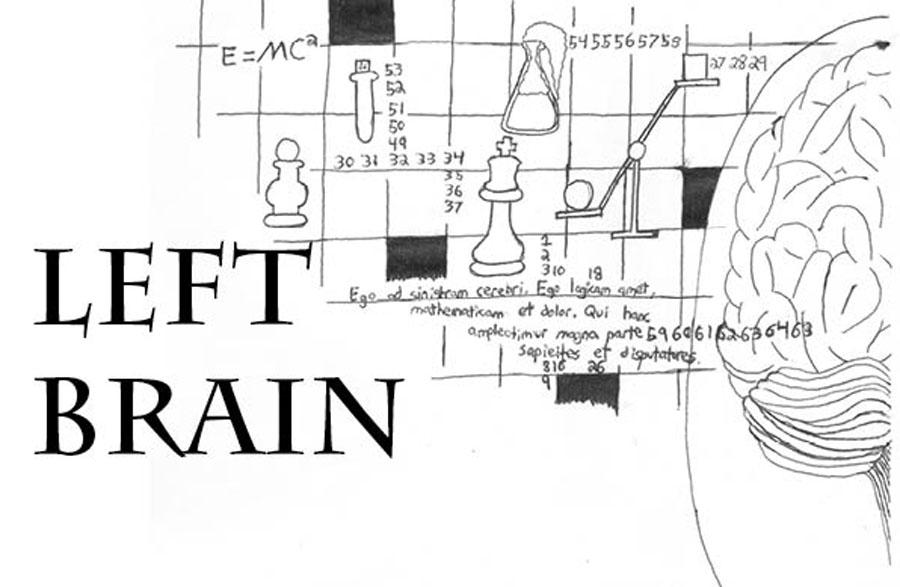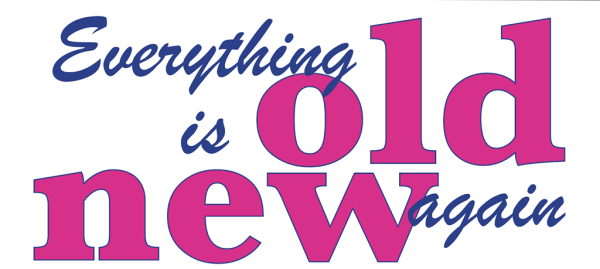Methodical side controls calculations and order
When psychology teacher Tony Carter played a card game with his second period class, senior Davannah Philipp pulled a card from her hand, and Carter knew the card she pulled was a bluff because he knew she was excessive dominate left-brained, and she would have all her cards in order.
This is just part of the information psychology students learned when they studied hemispheric tendencies at the beginning of October.
Junior Jake Froese was one of the students who took the hemispheric test which involved answering a series of questions and adding up the scores.
“When I look back at what I did with my art, if realized that I drew more realistically and not in a cartoon style,” Froese said. “It made sense that I’m dominant left but not excessively.”
According to nobelprize.org, in the 19th Century research on brain injuries made scientists suspect that the “language center” of the brain was commonly located in the left hemisphere.
In 1981, Roger Sperry won the Nobel Prize in physiology or medicine for his discoveries in the functional specialization of cerebral hemispheres, which is commonly called the split brain theory.
In the 1960s there was no cure for people who suffered form a special type of epilepsy except to cut off the connection between the two hemispheres. This made it possible for patients to live a normal life. While caring out these experiments, doctors noticed “odd behavior”.
From the split brain experiments scientists learned that the left side of the brain specialized in carrying out analytical and verbal tasks.
The left hemisphere, for instance, is what makes you able to read the word “dog”, but it does not give you the ability to imagine what a dog is.
According to Carter, being left-brained
means you are analytical. Left-brained people
usually excel in math and science.
“I’m definitely left-brained,” junior Josh
Easterbrooks said. “I love math, and it comes
easily to me.”
Left-brained people use logic and an
organized thought process when faced with a
dilemma.
“I analyze everything,” junior Nayeli Ayala said.
“It helps helps me make the best choices.”
The left-brained also have a difficult time answering
open-ended questions on a test. They like having
specific directions.
“It makes me uncomfortable with that much freedom,”
sophomore Katy Thiessen said. “I like having choices.”
According to psychology.about.com, the left side of the brain
controls language, logic, critical thinking, numbers and reasoning. That is why people who are dominatly left-brained usually have more skill in these areas.
“I am definitely left-brained because I’m good at math,” sophomore Ethan Ruiz said. “I’m not good at drawing, and I’m not very artistic.”
Carter said that the school enviroment is set up to favor the left brain.
“Left-brained people prefer rows of desks and bright lights,” Carter said. “When taking tests, they like complete silence.”
An article on buzzle.com said, “The left brain functions logically… This enables the left-brained people to make decisions based on
logic or established facts and detailed
analysis of information, rather than
emotion and intuition.”
Special education teacher Tina Henson, who is
left-brained, said she hates having to write or do social studies because she doesn’t think that way.
Left-brained people like to do things in a logical order.
“I do one homework assignment at a time,” junior Oscar Villa said. “It’s easier to focus on one task than many at a time.”
Dividing the human brain into hemispheres is called “lateralization”. In left-handed people the right side of the brain controls the functions like speech. Lateralizatioin also influences hand use preference. This is why many right-handed people are left-brained, or so the theory goes.
The University of Utah recently came out with a theory that the left-brain/right-brain idea is a myth after they did an analysis over 1,000 brains where they found no evidence that people preferred the use of left or right brain. So believing that you are left or right-brained might make you feel more comfortable with who you are, but it might have no real basis in fact.




